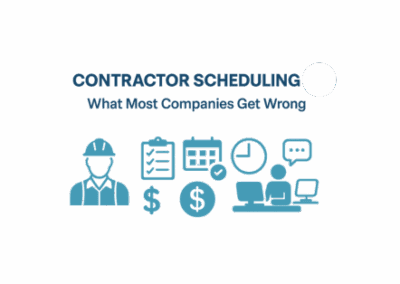Ask any HR manager and you’ll learn that recruiting isn’t an easy task, even at the best of times. However, hiring the right employees during “the great resignation” certainly has unique challenges that would make even the strongest recruitment strategy crumble. Over the past decade, we’ve seen a rising trend in quit rates and employee turnover. Here, we break down some key reasons that your recruitment strategy might not be working. A failing strategy around hiring leads to low application rates, no-show interviewees, and poor conversion rates. If these all sound familiar to you, you might want to keep reading.
Why a recruitment strategy is essential.
It goes without saying that every company wants to hire and attract the best talent, right? Well, just like anything in business, it’s a competitive space when trying to find the right employees. Your recruitment strategy essentially helps you build your unique position in the job market. Your recruitment strategy helps you stand out from competitors, and attract the type of talent you’re looking for. The best way to explain this is with an example.

Everyone has heard of Google’s recruitment process. During interviews, they are known to ask obscure questions to filter out exceptional candidates that will fit in with their fun, creative corporate culture while also proving that candidates have problem-solving skills. This is a perfect example of an effective strategy – it attracts exactly the right type of candidate needed for the job who also fits the culture. Sounds simple, but when you’re one of the world’s biggest organizations, things often do sound easy.
Why your current recruitment strategy isn’t working
So, you’ve built out what you feel is an effective recruitment strategy. Great! However, you’ve noticed that there are still issues with low application rates, your interviews are nothing exciting, and you just cannot hire the right employees. Something must be wrong. Chances are, something from the list below is causing trouble with your recruitment process.
You’re not using metrics to measure success
Almost every recruitment strategy in the world has the same goal: hire more top talent. Yes, this goal is crucial, but it’s far from perfect. Why? It has no concrete numbers or metrics to measure success.
Without tracking recruitment metrics, it’s inevitable that your weak points will go unnoticed. Just like any other goals set in business, the goals of your recruitment strategy should follow the SMART framework.
- Specific
- Measurable
- Attainable
- Relevant
- Time-Based
By tracking metrics like traffic to careers pages or drop off during the application process, you can pinpoint areas you need to improve upon. Another metric to look at is your job description views, which will help you determine if your job description is enticing enough to encourage application. You could also monitor time to interview/time to hire to see if your process is too long, and applications are ending up elsewhere first.
You use an inconvenient application process
Put yourself in the shoes of an applicant, and walk through your own application process. (Only about 40% of employers actually do this, unsurprisingly). Was it enjoyable? Did you roll your eyes when you had to regurgitate the resume you just uploaded into a web form? You may need to re-think the application process area of your recruitment strategy.
A complicated, cumbersome application process creates a negative perception of your brand to applicants. If it’s challenging to apply for a job at your organization, applicants may believe it’s pretty painful to work there too. There are some very simple steps you can take to simplify your process for applicants.

- Be transparent about how long the application will take: 76% of job seekers want to know how long it will take to fill out an application before they apply.
- Shorten the process: 70% of applicants believe an online application should be five steps or fewer. The interview is a great opportunity to cover off anything that was left out of the application process. If the process is too long, you’ll never get the right talent in front of you for an interview in the first place.
- Make it mobile friendly: Consider that not everyone has access to a laptop or computer. Or, think about how many potential candidates spend their time scrolling job boards on their mobile. If they can’t apply then and there for the role, chances are they will never come back to it. This is a simple consideration that is often overlooked.
If you’re unsure about whether your application process is the problem, go back to the metrics we mention above. If traffic to the job description is very high, but applications are low, or drop off is high, you likely have an application process issue. If you’re struggling with this, you could also engage with an agency using recruitment agency software!
You’re not utilizing an employee referral program
When looking at your recruitment strategy, you might have missed a huge potential source of talent. You’re currently sitting on a goldmine of talent – your existing employees! Chances are, they’ve previously worked with strong talent, they have a friends/family with desired skills, etc that you’re not tapping into. We recommend sharing your job openings with your current workforce and incentivizing them to share them with connections. It’s pretty common for these referrals to be based on how long a new recruit stays with the company, or completes training, etc depending on the industry. This can help reduce year one turnover which is a huge issue for HR managers.
The great thing about employee referrals is that employees are not very likely to refer anyone they don’t genuinely recommend. Referrals are a reflection of the employee themselves. If a worker refers a poor worker, or bad fit, it reflects on them, so they probably want to avoid that! The employee has great knowledge of the organization and the culture and so, will refer those who are a genuine potential match for the role and the company.
Your recruitment marketing is a brand mismatch
Now, more than ever, job seekers are looking for companies that align with their values and satisfy their personal needs. Worker demands are higher than ever, and now that we’re experiencing “the great resignation”, the power ultimately is with the workers. With this in mind, you need to ensure that your recruitment strategy and marketing match the values and desires of the talent you want to attract.

If your organization offers any perks/benefits, be sure to shout them from the rooftops! Well, at least include them on job listings and career pages to ensure that applicants know what they get out of choosing your company to work for. Also, remember that there are job review sites such as Glassdoor, so monitoring brand reputation is key. Of course, the best way to ensure positive reviews is with a positive work environment, opportunities for advancement and encouraging current employees to leave reviews about their experience. In fact, that’s a great marketing tool to use as part of your recruitment strategy. Ask employees to write testimonials to use on your website/job boards, or go a step further and create videos of employees telling their stories.
You’re not providing candidates with the right information
It’s no secret that interviews are used to understand an applicant’s preparedness and attentiveness. However, that doesn’t mean you should set them up for failure. Give applicants as much information as possible about the interview process to ensure they can prepare and present the best version of themselves. Think about it. No employee is expected to work with no information about the task at hand and some context about the end goal. So, the same should apply to job candidates. Pre-interview briefs should be a consistent part of your recruitment strategy.

Inform the applicant how long the interview will be, how many people will be present, and a rough idea of what the format will be. Informing the candidate if it will be a casual chat, or formal Q&A enables them to prepare appropriately, which ultimately ends up saving you time. Also, it’s important for you to paint an accurate picture of the role and the organization to ensure best fit hires. A Glassdoor/Harris Poll found 61% of employees reported the realities of their new job differed from what their interview portrayed. This ultimately leads to increased turnover which is draining on company resources, and leads to the process restarting from the beginning.
Start improving your recruitment strategy today
All of this sounds pretty overwhelming and can seem like one hell of a mountain to climb. However, know that taking it one step at a time makes all of the difference, and is better than doing nothing at all. The important takeaway here is that it’s important to continuously assess and improve your recruitment strategy to ensure success. Before you know it, you’ll be hiring and retaining top talent with ease!




